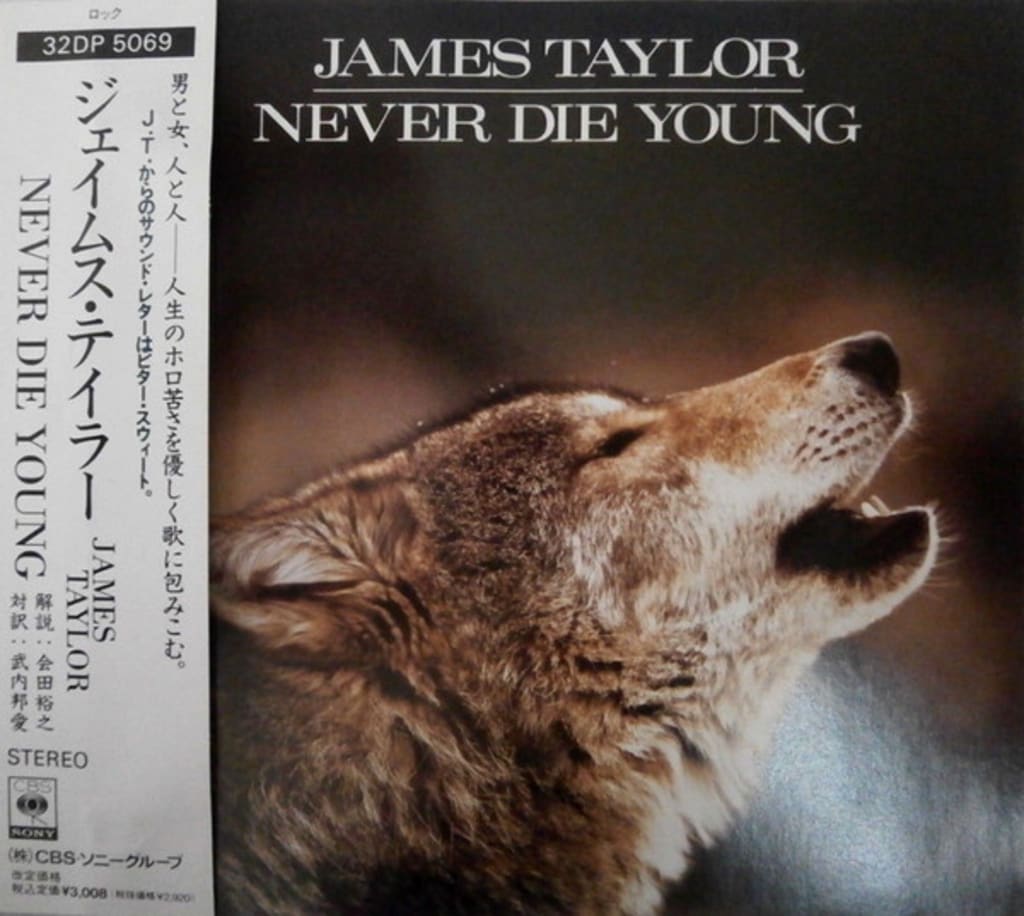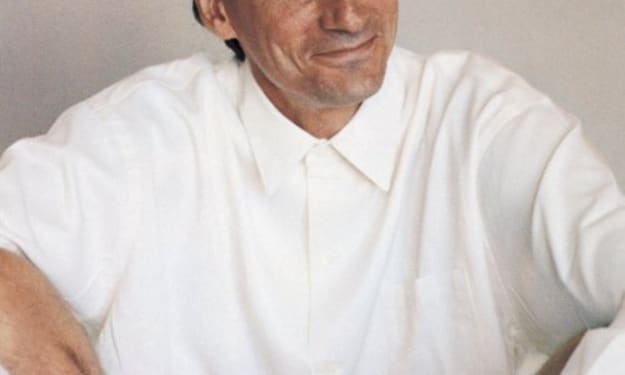'Never Die Young'
James Taylor's last album of the 80s

James Taylor's 12th studio album, and last album of the 1980s, Never Die Young was produced by James' longtime keyboard player Don Grolnick. It was recorded at "the Power Station " in New York and featured the debut of Bobby Mann on guitar and Carlos Vega on drums and percussion, two musicians who would become integral members of James's touring band over the next decade.
The album followed the underrated, albeit covers-heavy That's Why I'm Here by three years, arriving in January of 1988 to middling reviews. Not a lot of people thought Never Die Young to be a top-tier Taylor album, though he wrote or co-wrote every song. And you won't see that sentiment expressed here as much of the album recycles the musical style Taylor had pretty much been using to varying results since the release of Flag. Many songs, to borrow from Randy Newman, sound just like a record Taylor had made, just not as good.
That's too easy a dismissal, however. What is notable about Never Die Young is that Taylor is more and more comfortable leaning on some of the best available musicians to keep things on a very high level. While all his albums are professional, here it is taken to a higher level--something that will be seen more and more over the less and less frequent albums that follow.
Leading off the album is the title track with its message of resilience, a theme Taylor has returned to again and again. Rosemary Butler, Arnold McCuller, Lani Graves and David Lasley provide backing vocals. It's all very nice, but very much in the mid-tempo 80s-style pocket that James was employing all too often.
The next track concerns a puzzling traveling partner named "T-Bone." The track was written with Little Feat's Bill Payne, whose synthesizers define the instrumental backing, which also features Michael Brecker on tenor saxophone and nice percussion work and drums by Carlos Vega.
"Baby, Boom Baby" was written with James' longtime friend Zachary Wiesner and despite its dumb title, it's a pretty fair ballad about love lost and possibly regained. Rosemary Butler and Arnold McCuller sweeten the song with backing vocals. Michael Brecker adds even stronger help with strong saxophone throughout, including a subdued signature solo that closes the track.
Taylor presents a somewhat unauthentic lyric about the "Runaway Boy," a Southern man who wants to finally set down roots for good. The whole enterprise is saved by a nifty backing track, which features prominent violin from Mark O'Conner and more synthesizers by Bill Payne.
"Valentine's Day" is a cynical tribute to the holiday, driven by Don Grolnick's piano and Mark O'Connor's violin. It's a nice little song, but there's not a single line you'd put on a card to someone you cared about.
"Sun On The Moon" begins with a very gospel-style choir, a device that Taylor would put to good use on coming albums, and features a programmed percussion beat, parts of which undermine the song. Still, it is a very upbeat song that highly entertains despite (or possibly because of) a very odd lyric that allow James and singers to "bow wow wow" and "honk their horn."
"Sweet Potato Pie" is another upbeat song underscored by organ, featuring prominent electric guitar solos by Bobby Mann. An endearing if eccentric love song to an endearing if eccentric woman, the song was later done by James with Ray Charles on his duet album Genius Loves Company in 2011.
"Home By Another Way" uses the story of the Magi from the Bible to impart a typical Taylor lesson in song. If you remember, the Magi protected the baby Jesus from the bad intentions of King Herrod by going home by another way. The musical backing is in a nice mid-tempo groove, with the harmonica of Greg "Fingers" Taylor meriting special note.
"Letter In The Mail" is a song about a dying town, losing factory and mill jobs; it's a song that could have been in the libretto for Studs Turkel's play Working, to which James had contributed songs nearly a decade before. A nice track that breaks no new musical ground for JT, despite more stellar work from bassist Lee Sklar, Brecker, O'Connor, Mann, Vega, and the backing vocalists.
If you believe his recent concert monologues, Taylor was inspired to write "First Of May" based on a saying that his father, Ike used to say on May 1: "First of May, First of May, Outdoor ****ing begins today." The song is much more innocent than that, recalling "Summer's Here" from Dad Loves His Work as simple celebration of a new season. The instrumentation here is interesting, though; it's probably the song that best employs Payne's synthesizers as well as ace vocal team of McCuller, Butler, Lasley and Groves. It's a closing song that heartens, heralding that better days were ahead for Taylor.
While lacking any classics or near-classics, this album did a fine job of closing an inconsistent decade for Taylor. While is albums were not selling as they did in the 70s, there was an undeniable creativity of presentation merging with a renewed plan to record only with the best musicians. So not surprisingly things would improve greatly for Taylor in the next decade. He was no more prolific than he was in the 1980s but songs on Taylor's 90s albums would be strong track after track.
About the Creator
Sean Callaghan
Neurodivergent, Writer, Drummer, Singer, Percussionist, Star Wars and Disney Devotee.






Comments
There are no comments for this story
Be the first to respond and start the conversation.